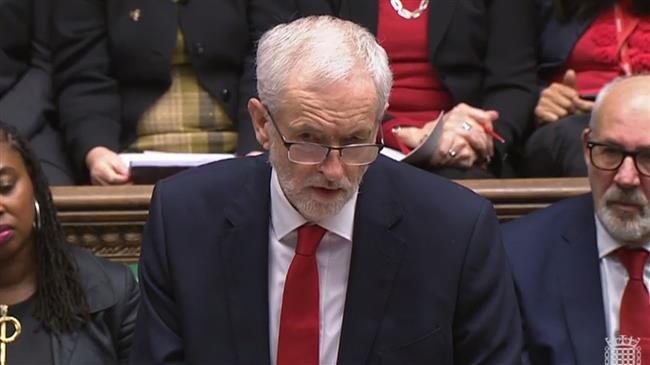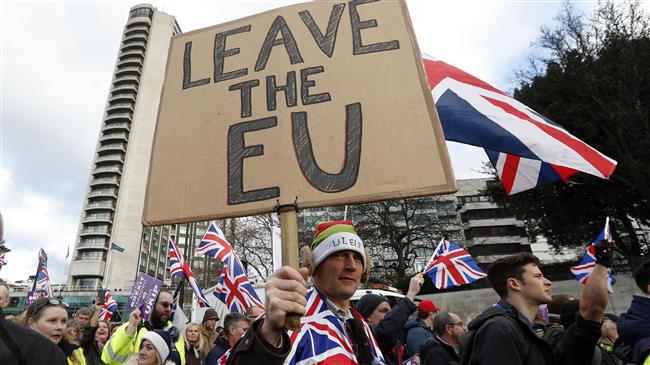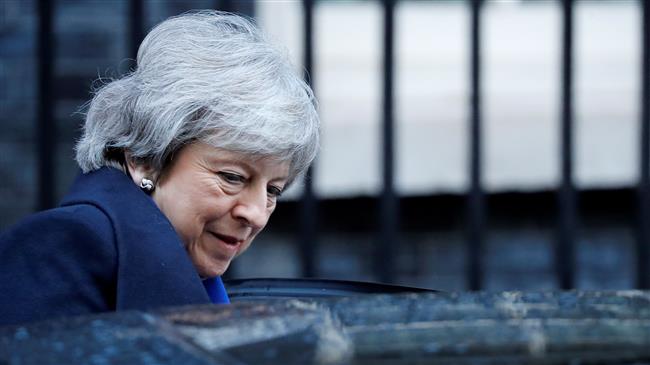UK ministers: Brexit may be delayed, even cancelled
British ministers reveal that Brexit may be delayed or even cancelled as lawmakers are set to vote on Prime Minister Theresa May's exit deal on Tuesday.
“The legislative timetable is now very very tight indeed,” a senior minister told London’s Evening Standard on Friday.
“Certainly, if there was defeat on Tuesday and it took some time before it got resolved, it’s hard to see how we can get all the legislation through by March 29.”
Also, another cabinet minister underscored the inevitability of a delay to Brexit by saying a short extension of Article 50 of the Lisbon Treaty is likely to be required to implement a deal that is approved.
“It will be difficult to pass the legislation by the end of March, even if the deal goes through,” the frontbencher told The Independent.
“But no one is going to object if we need a couple more weeks,” he added.

Meanwhile, Downing Street tried to play down the chances of any extension on Friday, saying that it was not “government policy.”
A government spokesperson said that May had "ruled out" extending Article 50.
This came after Foreign Secretary Jeremy Hunt warned earlier in the day that the UK faced the prospect of no-Brexit if May's deal was rejected.
“If this deal is rejected, ultimately what we may end up with is not a different type of Brexit, but Brexit paralysis. And Brexit paralysis ultimately could lead to no Brexit,” Hunt told BBC Radio 4’s program.
On Wednesday, parliament approved a crucial amendment to May’s deal, allowing MPs to come up with their own alternative plans.
House of Commons Speaker John Bercow allowed MPs to vote on an amendment that forced May to prepare a Plan B within three days if her deal gets rejected on Tuesday.
A day earlier, lawmakers voted to block possible preparations for a no-deal Brexit by curtailing the government’s powers to amend laws that would allow smooth taxation after a disorderly divorce from the EU.
Hamas condemns Israeli evacuation order of Indonesian Hospital
VIDEO | Yemen resistance remains resolute
'Easy target': Yemen warns 4th US carrier within reach
Iran military awarded $40 mln worth of vessel building contracts
‘These kids need to be killed’: Shocking details of Israeli brutalities in Gaza
Yemen faces ‘highest burden’ of cholera globally: WHO
Settlement expansion proves Israel cannot be trusted for any peace deal: Hamas
VIDEO | Press TV's news headlines














 This makes it easy to access the Press TV website
This makes it easy to access the Press TV website